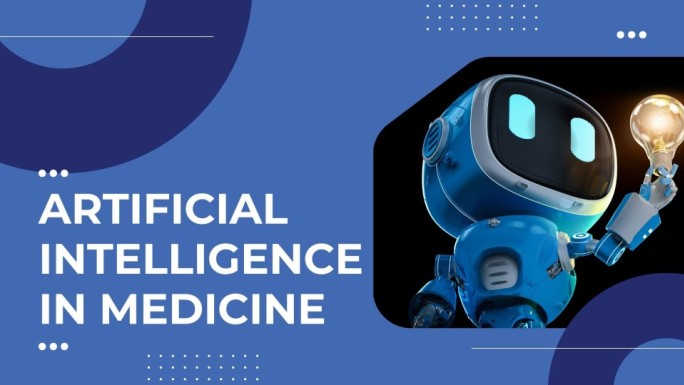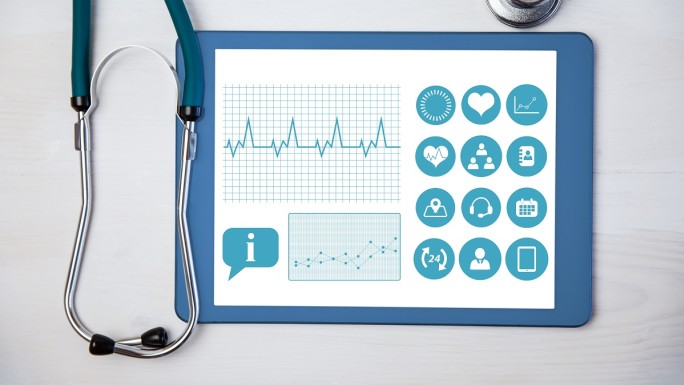Medication Safety in the Digital Age: The Role of Drug Information System
Among the digital tools that have transformed the healthcare landscape, the drug information system is an outstanding modern medication practice. In this article, we explore the role of drug information systems, finding how they have become crucial in ensuring that patients receive the proper medications at the right time and in the safest possible manner.
Definition of Drug Information System

A drug information system, also known as a medication information system or a medication management system, is a specialized software or information system designed to provide comprehensive and up-to-date information about medications, drugs, and pharmaceuticals.
Depending on the purpose of healthcare organizations, drug information systems will have various functionalities or integrate with other healthcare systems, such as: creating prescriptions, electronic medication orders, or comparing new prescriptions to the old ones. Drug information systems are used in healthcare settings to support healthcare providers, pharmacists, and other professionals in managing medications and ensuring patient safety.
The Role of Drug Information System
Maintaining comprehensive drug databases
By leveraging advanced technology, drug information systems continuously gather, organize, and validate a vast amount of information about medications, ensuring the accuracy and completeness of the drug database. This includes details on drug names, dosages, indications, contraindications, side effects, drug interactions, administration guidelines, and much more.
Automated processes within the drug information system regularly update the database with the latest information from trusted sources, such as pharmaceutical manufacturers, pharmacopeias, and regulatory agencies. This ensures that healthcare providers, pharmacists, and patients have access to the most current and reliable drug information, contributing to safe and effective medication management.
Improving revenue of healthcare providers
By optimizing medication management processes, the drug information system contributes to operational efficiencies, reducing the time spent on manual tasks and paperwork. Enhanced clinical decision support features and real-time alerts help prevent medication errors, reducing the likelihood of costly adverse events and subsequent legal issues.
The system's analytics capabilities offer insights into prescribing patterns, enabling providers to identify cost-effective medication options and negotiate better procurement deals.
Additionally, improved patient outcomes and satisfaction, stemming from accurate medication management facilitated by the drug information system, can positively influence patient experience and attract new customers.
Supporting medication reconciliation
Drug information systems centralize a patient's medication history, offering healthcare providers access to a comprehensive and up-to-date record of all medications the patient is taking, including prescription drugs, over-the-counter medications, supplements, and herbal remedies. During the medication reconciliation process, the drug information system helps healthcare providers compare a patient's current medication list with historical records, identify discrepancies, and resolve any inconsistencies or potential drug interactions.
Through its clinical decision support features, a drug information system provides real-time alerts and recommendations, ensuring that medication reconciliation is accurate and thorough. This proactive approach enhances patient safety, reduces the risk of adverse events, and promotes continuity of care, making it an essential component of the medication reconciliation process within modern healthcare settings.
Identifying and preventing drug interactions, allergies, and adverse reactions
These systems contain vast databases of drug information, including details on drug-drug interactions, allergies, and side effects. When a healthcare provider prescribes or dispenses a medication, the drug information system immediately cross-references the patient's medication history, medical conditions, and allergy information with the prescribed drug. If a potential interaction or allergy is detected, the system will generate real-time alerts and warnings. This proactive approach allows healthcare providers to reconsider their prescriptions or take appropriate measures to prevent adverse events.
Additionally, drug information systems continuously update their databases with the latest information, ensuring that healthcare professionals have access to the most current knowledge to make informed decisions, ultimately enhancing patient safety and minimizing the risk of medication-related complications.
Helping outpatient and ambulatory care settings
In these settings, drug information systems provide healthcare providers with instant access to comprehensive drug information, enabling precise prescriptions, accurate medication administration, and proactive identification of potential drug interactions or allergies.
Moreover, drug information systems support the transition of care by maintaining up-to-date patient medication histories, and promoting continuity of treatment plans across various healthcare facilities.
By delivering patient-specific data, decision support, and medication education, drug information systems empower healthcare professionals to make informed clinical decisions and optimize patient outcomes.
Complying with healthcare regulations
Many healthcare facilities and insurance plans maintain medication formularies that list approved medications. A drug information system can help healthcare providers adhere to formulary requirements by providing real-time information about which medications are included, ensuring that prescriptions are aligned with the formulary.
Regulatory agencies often reference clinical guidelines in their requirements. Drug information systems incorporate clinical guidelines into their clinical decision support, aiding healthcare providers in adhering to evidence-based practices and meeting regulatory standards.
Find out more about Key features of Drug Information System
Challenges in Implementing Drug Information System

Implementing a Drug Information System can be a complex endeavor, and several challenges may be encountered during the process. These challenges can vary depending on the specific healthcare environment and the drug information system being implemented. Here are some common challenges in implementing a drug information system:
Drug Data Quality and Integration
Ensuring the accuracy, completeness, and integration of medication data from multiple sources, such as pharmaceutical manufacturers, compendia, and regulatory bodies, can be challenging. Inaccurate or inconsistent data can lead to medication errors and jeopardize patient safety.
Customization
Adapting the drug information system to the unique needs and workflows of a healthcare organization can be time-consuming and may require significant customization. Striking the right balance between customization and off-the-shelf features is crucial.
User Training and Adoption
Healthcare providers and staff must be adequately trained to use the drug information system effectively. Overcoming resistance to change and ensuring that all users are proficient with the system can be a significant challenge.
Data Security and Privacy
Safeguarding patient health information is a top priority. Implementing robust security measures and ensuring compliance with healthcare data privacy regulations, such as HIPAA, can be challenging.
Integration with Other Systems
Ensuring seamless integration with Electronic Health Records (EHRs), Pharmacy Information Systems, and other healthcare systems can be complex and require collaboration with IT teams and vendors.
Solutions for Advancing Drug Information Systems

Advancing Drug Information Systems involves implementing solutions to enhance the functionality, usability, and impact of these systems. These solutions can improve patient safety, streamline clinical workflows, and provide more effective decision support.
Continuous Data Quality Improvement
Invest in data validation and quality control measures to maintain the accuracy and completeness of the drug database. Regularly audit and update data sources to ensure data reliability.
Machine Learning and AI Integration
Incorporate machine learning algorithms and artificial intelligence into the drug information system to enable predictive analytics for drug interactions, personalized medicine, and early detection of adverse events.
Compliance with Regulatory Changes
Stay updated with changing healthcare regulations and standards, and adapt the drug information system to comply with new requirements and reporting standards.
Personalized Medicine Features
Develop capabilities for tailoring medication regimens to individual patients based on genetic, pharmacogenomic, and patient-specific data.
User-Centered Design
Develop drug information systems with a user-centric approach, involving healthcare providers and pharmacists in the design and evaluation process to create user-friendly interfaces that align with their workflow.
Real-time Clinical Decision Support
Enhance the clinical decision support features to provide more precise medication recommendations and minimize alert fatigue by customizing alerts to the specific needs of healthcare providers.
Data Security Enhancements
Strengthen data security and privacy measures to protect patient health information, including encryption, access controls, and ongoing vulnerability assessments.
Interoperability with Other Systems
Ensure seamless integration with Electronic Health Records (EHRs) and other healthcare systems to provide a unified view of patient data and facilitate coordinated care.
Find out more about other medicine-related systems here!
Conclusion
The role of Drug Information Systems in modern healthcare is nothing short of transformative. They have moved beyond drug data storage to becoming intelligent, patient-centered, and dynamic tools that empower healthcare providers to make informed decisions. The advancements in technology, the integration of artificial intelligence and machine learning, and a relentless focus on patient safety have set the drug information system as an essential part of the healthcare revolution.
As we embrace the digital age, it's essential to acknowledge the critical role of Drug Information Systems in enhancing patient care and driving better outcomes. These systems display the power of technology and medicine, paving the way for a safer, more efficient, and patient-centric healthcare future.









